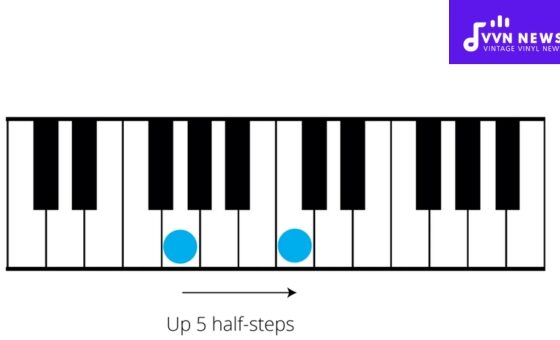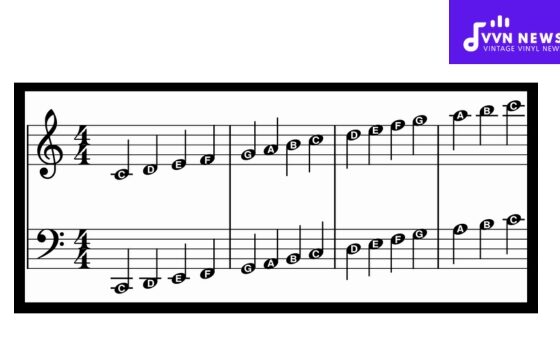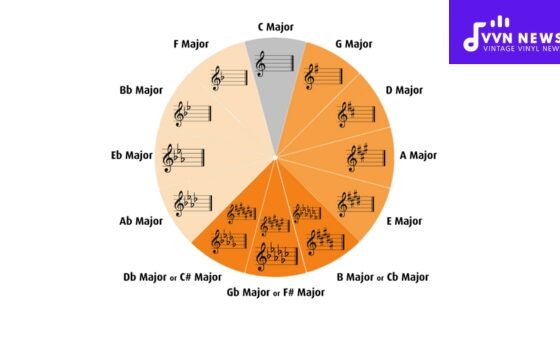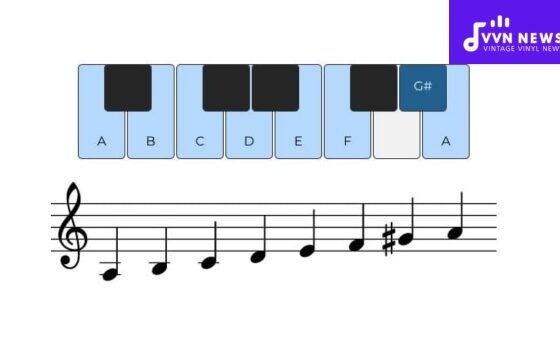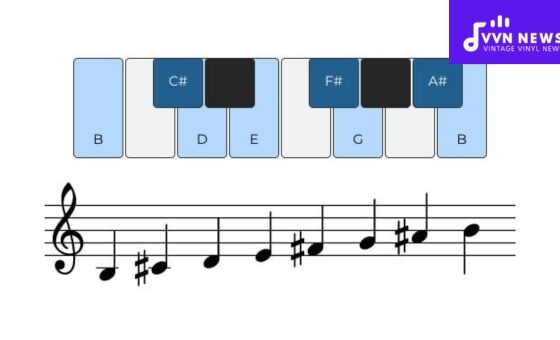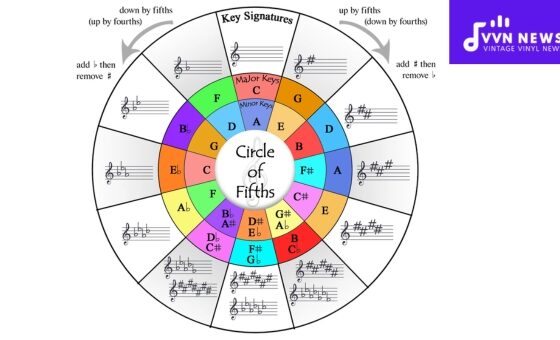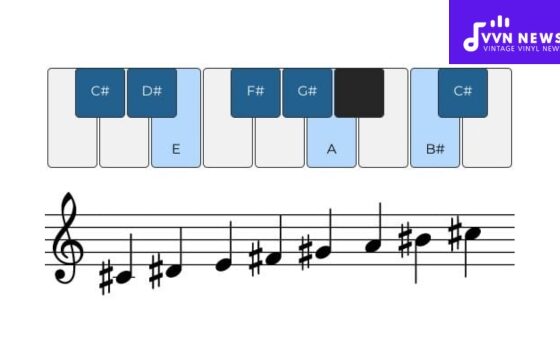Have you ever wondered why musicians, artists, and even athletes constantly emphasize the significance of scaling in their crafts?
Why should we practice scale? is a common question for those starting on their journey towards mastery. The truth is, that practicing scale is akin to setting the foundation of a house.
It not only improves your skills but paves the way for greater innovation and creativity in any discipline.
For the uninitiated, the concept might appear redundant or even frustrating at times. Interpretation without foundation can lead to a weakness in skills over time.
Hence, scaling is not just about repetition or perfection but about developing deeper agility and precision within us.
Mastering it offers benefits that stretch far beyond surface-level skills. It equips you with the tools necessary for the woeful complexity that comes with mastery, instilling confidence at each step along your journey.
What Are Musical Scales?
Musical scales form the structural basis for any piece of music. They are sequences of notes that ascend or descend in a definite pattern.

Each scale follows a specific formula and has a unique tone quality or color.
The two primary types of scales major and minor, that we often encounter, are only part of a rich tapestry that includes pentatonic, chromatic, blues, and whole tone, among others.
These scales are foundational to the music we hear every day; from pop songs to grand symphonies.
Mastering them allows you to expand your repertoire and fosters creativity in crafting your compositions. All these hold regardless if you sing, play an instrument, or compose.
Also Read: Harmony In Music [Enhance Your Compositions With These Tips]
What are the fundamentals of musical scales?
At their core, musical scales are sequences of notes that ascend and descend in pitch, serving as the building blocks for melody and harmony.

Each scale is defined by a specific interval structure—the step pattern between consecutive notes—which gives it a unique sound or “color.”
Different Types of Scales
The two most common scales are:
- Major Scales: Characterized by a bright, ‘happy’ sound
- Minor Scales: Known for a sadder, more ‘solemn’ tone
While these two are fundamental, there exist numerous other variants such as chromatic scales, which include all twelve pitches between octaves, and pentatonic scales, which have five notes per octave and are popular in many cultural musics around the globe.
Scale Degrees and Their Functions
Each note in a scale has a role to play—a function—within the tonal framework:
- Tonic
- Supertonic
- Mediant
- Subdominant
- Dominant
- Submediant
- Leading tone
These degrees create various chords and progressions that form crucial components of Western music theory.
Practicing these scales not only increases the musician’s familiarity with their instrument but also builds essential cognitive pathways for musical interpretation.
By learning various scales, musicians can navigate complex compositions with greater ease and develop an intuitive knowledge of music across genres.
Also Read: E Major: Scale And Chords [Exciting Sounds For Your Compositions]
Why Should We Practice Scale?
Practicing scales might appear to some as a monotonous preamble to the more exciting aspects of playing an instrument.

The benefits gleaned from diligent scale practice are multifaceted and profound. Here’s a closer look at why incorporating scale practice into your routine is indispensable:
Improves Finger Strength and Dexterity
Finger strength and dexterity are crucial for executing complex pieces with clarity and precision.
Each note in a scale demands an acute level of control, gradually enhancing your fingers’ responsiveness.
Regularly traversing the musical ladder allows each finger to gain an individualized workout, leading to balanced muscle development and agility.
This endurance translates into more fluid performances across various genres.
Enhances Music Theory Knowledge
Musical scales serve as the building blocks for the theoretical aspects of music composition.
They reveal patterns that makeup chord progressions, key signatures, and harmonies.
By practicing scales, you cement these patterns within your mind, equipping yourself with the necessary vocabulary to both appreciate deeper layers of music and communicate effectively with fellow musicians.
Aids Memorization of Compositions
Learning compositions can be daunting but familiarizing oneself with scales makes this task markedly easier.
Since many pieces are constructed around core scale structures, having a strong grasp on scales means you’re already halfway there before tackling a new piece.
This foundational knowledge acts as a memory aid when navigating the sea of notes within any given work.
Develops Rhythm and Timing
A common pitfall for many beginners is irregular timing—scales come to the rescue here as well.
Methodical scale practice instills a natural sense of rhythm by reinforcing consistent tempo throughout the repetitive motion.
Proper timing becomes second nature, which is indispensable for solo performances or playing in unison as part of an ensemble.
Facilitates Note Transitions
One cannot underestimate the importance of seamless note transitions for maintaining the flow of a piece.
Practicing scales acquaints you with every possible note transition within a particular key, smoothing out any rough edges between intervals.
As your fingers learn to move between notes effortlessly, you’ll find that even rapid sequences or unexpected leaps won’t catch you off guard during performances.
Developing Mechanism for Swift Play
When we practice scales meticulously, we’re investing in the physical mechanics needed to navigate our instrument with both speed and precision.
Continuous scale drills condition our fingers to move rapidly without sacrificing accuracy, allowing us to execute quick passages effortlessly in more complex pieces.
Mastering the Daunting Segments
Difficult segments in music often involve intricate finger movements and transitions.
Regular scale drills familiarize us with these movements, breaking down barriers that once seemed insurmountable.
As a result, when we encounter similar challenges within repertoire pieces, they become manageable rather than overwhelming.
Unleashing Creativity Through Structure
Improvisation might seem like pure spontaneous creation, but it’s deeply rooted in the solid groundwork of scales.
This practice lays down the schematic map of notes which becomes second nature—a mental framework from which we can venture into the world of creative improvisation while staying harmonically grounded.
Sharpening Auditory Skills
Practicing scales is not merely a physical exercise; it’s also an aural one. It trains your ear to recognize tonal patterns and intervals consistently and accurately.
Recognizing these sequences by ear will greatly improve how you understand and internalize music.
Preparing for Complex Techniques
In pursuit of musical excellence, players must adopt techniques that demand more than basic proficiency.
Scale practice is like an athlete’s workout—it conditions the essential muscles for advanced demands such as vibrato, staccato, or other stylizations unique to one’s instrument, ensuring you’re well-prepared for whatever technical challenges come your way.
Remember that every note played during scale exercises is not merely a step toward faster playing but also a leap toward deeper musical comprehension.
So when you reach out for your instrument next time, give those scales the attention they deserve — they’re shaping you into a versatile and competent musician with each repetition.
Also Read: A Guide Transposing Into The Alto C
FAQs
Can practicing scales improve my improvisation skills?
Absolutely! Scales provide the musical vocabulary necessary for spontaneous creativity and fluent improvisation.
How often should I practice scales for best results?
Daily practice is ideal, aiming for at least 15-30 minutes to see consistent improvement in technique and familiarity.
Do scales need to be practiced at a certain speed?
Start slowly to ensure accuracy and gradually increase speed, focusing on maintaining precision and even tempo.
Is it necessary to learn scales in all keys?
Mastering scales in all keys broadens your musical capabilities and ensures you’re well-prepared for any musical situation.
Can scale practice help with learning new songs more quickly?
Definitely! Knowing your scales streamlines the process of recognizing patterns in new music, allowing you to learn new pieces faster.
Also Read: How To Transpose Into The Tenor Clef?
Conclusion
In essence, the diligent practice of scales is the backbone of musical proficiency.
Not only does it fortify your technical ability, but it also deepens your musical expression.
As you journey through the peaks and valleys of mastering an instrument, remember that scales are your steadfast companions, always guiding you toward a more nuanced performance.
Embrace them as the crucial stepping stones they are, and watch how they unlock doors to new sonic territories.
Be patient, be persistent, and let scales be the key to unlocking your full potential.

